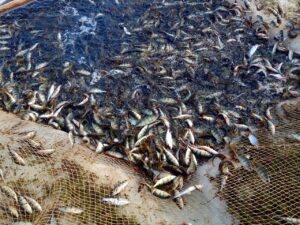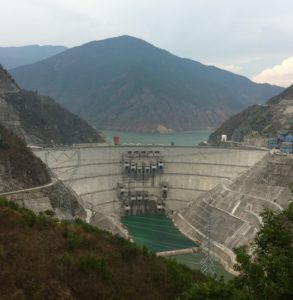Overview
The Walton Family Foundation (WFF) commissioned the Stimson Center to assess the impact and effectiveness of the US Seafood Import Monitoring Program (SIMP) implementation in four seafood-producing countries: Chile, Peru, Mexico, and Indonesia. Designed to improve traceability of seafood, SIMP requires documentation across the seafood supply chain, from point of harvest to point of entry into the US market. It focuses on a discrete number of 13 species that the National Oceanic and Atmospheric Administration (NOAA) deemed most likely to be at risk of illegal, unreported, unregulated (IUU) fishing and/or or seafood fraud. By enhancing transparency and traceability in the seafood supply chain, the assumption is that SIMP will lead to a reduction in IUU and fraudulent fish entering the US market. After examining the capacity gaps that exist, as well as the actions already being taken to improve compliance, this report pinpoints strategic areas where US federal agencies can provide support and strengthen implementation of the program in the four target countries. Many of the implementation problems within the four target countries are likely to be of issue in other countries facing similar capacity constraints.
In addition to this report and complementary to these research efforts, the Stimson Center has also responded to several Congressional inquiries to provide technical and educational support to Congressional offices as they developed the Maritime SAFE Act, which was introduced in the 115th and 116th Congressional sessions. The Maritime SAFE Act provides a framework for the US Government to improve interagency coordination and increase enforcement in the fight against IUU fishing, which the bill identifies as a national security threat to the United States. While SIMP expansion to new species was initially included in the bill as introduced, it was later removed. Nonetheless the Act has retained a robust traceability initiative, focusing on closing implementation gaps. The legislation is part of the Senate National Defense Authorization Act (NDAA) which passed in June 2019. The NDAA is currently in conference committee between the House of Representatives and the Senate which is due to finish in early September. The Stimson team continues to support Congressional offices on the topics of IUU fishing, traceability, and SIMP expansion. Stimson also tracked the 2018 Congressional appropriations and budget process, which included language to make shrimp and abalone imports compliant with SIMP by December 31, 2018, expanding the total number of SIMP species to 13.




